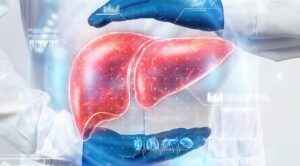Pancreatic cancer is the one of ten deadliest cancers in the world. According to the World Cancer Research Fund (WCRF), it is the 12th most common cancer in men and 11th most common in women. Although its prevalence is more common in developed countries, Indians should not ignore the fatal disease. It is an important public health issue because of its phenomenally high mortality rate across borders. Worldwide, it is the seventh most common cause of cancer. By looking at the occurrence of pancreatic cancer and the mortality rate associated with it, raising awareness for the disease is imperative.
WHY IS PANCREATIC CANCER SO RISKY?
The problem with pancreatic cancer is that the disease doesn’t show any early signs or symptoms. By the time the symptoms become prominent, the cancer is often spread to other parts of the body. So, when you are looking for symptoms of pancreatic cancer, you need to look for subtle changes. Now, having one or a few symptoms does not confirm the existence of pancreatic cancer. Sometimes the symptoms may be caused by other underlying conditions, however, it is always best to get yourself checked by a surgical gastroenterologist.
IMPORTANT SIGNS AND SYMPTOMS THAT YOU SHOULD NEVER IGNORE
The pancreas is located in the lower part of your stomach. It releases enzymes that help in the proper digestion of food. It even produces hormones to regular blood sugar. So, the very first sign of a problem is the sub-optimal functioning of the digestive system. Keeping that in mind, let’s look at the signs and symptoms of pancreatic cancer in detail:
- Nausea, vomiting, and swollen abdomen.
- Abdominal pain, backaches are common.
- Loss of appetite.
- Unintended weight loss and anorexia.
- Jaundice.
- Unexplained tiredness and fatigue.
WHAT ARE THE RISK FACTORS ASSOCIATED WITH THE DISEASE?
Anything that increases your chances of getting pancreatic cancer is a risk factor. Please note that if you have one or many risk factors, it does not mean you have the disease. It simply means there are higher chances of getting pancreatic cancer. As always adequate testing and thorough diagnosis from a surgical gastroenterologist is of prime importance.
UNMODIFIABLE RISK FACTORS OF PANCREATIC CANCER
- Age
Two-thirds of patients are above the age of 65 which shows that the risk of pancreatic cancer increases with age. - Gender
Men are more likely to develop the disease than women. If you compare the statistics, every 0.5-2.4 per 100,000 Indian men and 0.2-1.8 per 100,000 Indian women are affected by pancreatic cancer. - Race
Some research studies have pointed out that certain races are prone to developing pancreatic cancer than others. For example, African Americans are more likely to develop the disease. - Family History
A few hereditary conditions can cause pancreatic cancer. So, if you have someone in the family who is diagnosed with the disease, you need to get yourself checked, especially if you have multiple risks. The American Cancer Society also mentions that certain inherited gene mutations can increase the risk of pancreatic cancer.
Now, the above-mentioned risk-factors are such that you cannot change. However, it doesn’t mean that you will have pancreatic cancer in the near future. In order to reduce your risk, you need to consider the following modifiable factors as well.
MODIFIABLE RISK FACTORS OF PANCREATIC CANCER
- Consumption of Tobacco
Smoking is one of the leading causes of multiple types of cancer. According to research studies, smokers are twice as likely to get pancreatic cancer than non-smokers. Cigarettes, cigars, and other types of smokeless tobacco products increase similar risks. - Chronic Use of Alcohol
According to the Continuous Update Project (CUP) by the WCRF, there is some evidence that excessive use of alcohol can increase the risk of pancreatic cancer. The link between alcohol and pancreatic cancer is not certain, however, you must avoid heavy use of alcohol. - Being Overweight or Obese
Research shows that people who consume a high-calorie diet and are overweight or obese have higher chances of getting pancreatic cancer. Obese people with a BMI of over 30 are more likely to develop the disease.
Additionally, if you carry extra weight around the abdomen, it can become a matter of concern.
- Diabetes
It is seen that people with diabetes, especially type 2 diabetes are at higher risk. Now, diabetic patients and patients with insulin resistance must focus on the regular intake of medicines and lead a healthy life to reduce the risk associated with the disease. - Chronic Pancreatitis
If you are troubled by chronic pancreatitis, it is essential that you undergo regular tests and consultations with your GI surgeon. Do not ignore the inflammation of the pancreas. There is a strong link between pancreatic cancer and chronic pancreatitis, especially if the patient is a heavy smoker or alcoholic. - Exposure to Certain Chemicals
Constant and heavy exposure to certain chemicals, insecticides, silica dust, aliphatic solvents, etc. can increase your risk of pancreatic cancer. If you work in an industry where you are regularly exposed to chemicals, make sure you take enough precautions and use protective gear.
CORRECT DIAGNOSIS AND TREATMENT IS NECESSARY
If you are worried about the risks associated with pancreatic cancer and you are experiencing several symptoms, do not wait. Book a consultation with a gastrointestinal surgeon. He will prescribe you a CT scan, MRI, endoscopic ultrasound, biopsy among many other tests to confirm the existence of the disease.
An experienced and qualified gastrointestinal surgeon can help you with accurate diagnosis and immediate pancreatic cancer treatment. Depending on the stage of cancer, the treatment may include curative surgery, palliative surgery, chemotherapy, radiation, etc.
Remember that pancreatic cancer should never be taken lightly. If you are at risk for developing the disease, focus on the modifiable factors, and work on making positive lifestyle changes.
If you are showing symptoms of pancreatic cancer, do not ignore them. Consult the best pancreatic cancer surgeon in Surat. It is best to visit a reputed and qualified GI surgeon for immediate diagnosis and treatment of pancreatic cancer.





